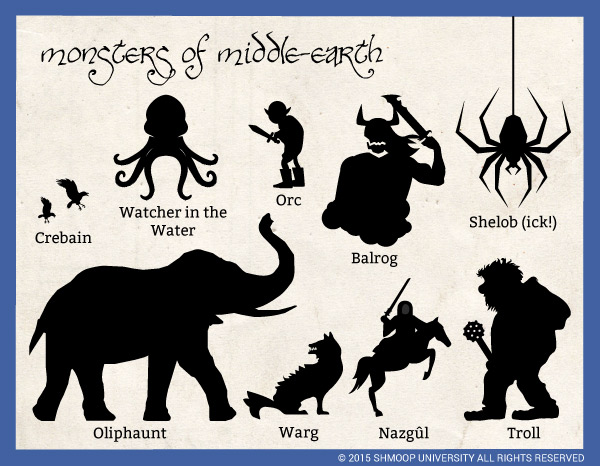There are two modes of warfare in The Return of the King. First we've got the widespread civilian destruction that Sauron wants to cause by tossing bombs over the city walls into Minas Tirith. Then, there is the more gentlemanly direct combat between men with swords that the Good Guys (and especially the Riders of Rohan) seem to prefer. Yet, even if hand-to-hand fighting is more honorable than throwing darts at combatants from above (we're looking at you, Lord of the Nazgûl), it's still not a good thing. Despite the fact that the warrior rage the men of Rohan show is on the Good Side, there's still something awful about loving fighting in Tolkien's book. Perhaps it's because no matter what, war is total. Its effects can be felt right down to the hobbits left behind in the Shire.

(Click the infographic to download.)
Questions About Warfare
- What emotions do we find in the bonds among warriors or between soldiers and their captains in The Return of the King? How do these feelings provide an emotional core for The Return of the King? Why is war such a bonding experience in Tolkien's novels?
- What tools do the orcs use to attack Minas Tirith? How do the orcs' strategies mimic or imitate modern warfare? What might Tolkien be suggesting about the moral value of modern military tactics?
- Does The Return of the King glorify war? Are there good methods of war and bad methods of war in this novel? If so, what are they? Would you say that The Return of the King is a pro- or anti-war novel? Why?
Chew on This
By emphasizing the emotional bonds among the people fighting on the good side, Tolkien implies that the only way to make something as awful as war even slightly bearable is through strong friendship.
Mordor's use of explosive siege weapons and dart-throwing Nazgûl represents a critique on Tolkien's part of the massive destruction caused by the bombs and airplanes of modern warfare.